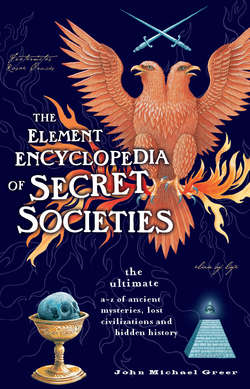Читать книгу The Element Encyclopedia of Secret Societies: The Ultimate A–Z of Ancient Mysteries, Lost Civilizations and Forgotten Wisdom - John Greer Michael - Страница 97
CANON EPISCOPI
ОглавлениеA text from Catholic canon law dating from ninth-century France, the canon Episcopi (the title comes from the Latin for the first word of the text, “Bishops”) was mistakenly thought to come from the fourth-century Council of Ancyra, and found its way into several major medieval collections of canon law. In criticizing various forms of semi-pagan folk belief as superstitious and un-Christian, it provides the first solid documentation for a tradition found in many other parts of medieval and early modern Europe. The specific passage runs as follows:
Some wicked women…profess that in the hours of the night they ride out with Diana, the goddess of the pagans and an innumerable multitude of other women, and in the silence of the dead of night they journey over vast distances of the earth, and obey her commands as their mistress, and are summoned to her service on certain nights.
This tradition of nocturnal shamanistic journeys appears in various places – a group of goddess worshippers rounded up by the Inquisition in fourteenth-century Milan, the benandanti (“good walkers”) of northeastern Italy in the sixteenth and seventeenth centuries, the testimony of a seventeenth-century werewolf from Estonia, and many others. Exactly what was going on is difficult to tell from this distance of time, but clearly a widespread but coherent shamanistic tradition existed in organized form in medieval Europe, and survived until quite recent times in a few areas. Some scholars have argued that distorted accounts of these traditions may have helped inspire the first great wave of witchcraft persecution. See Benandanti; witchcraft persecutions.
Further reading: Ginzburg 1991.
